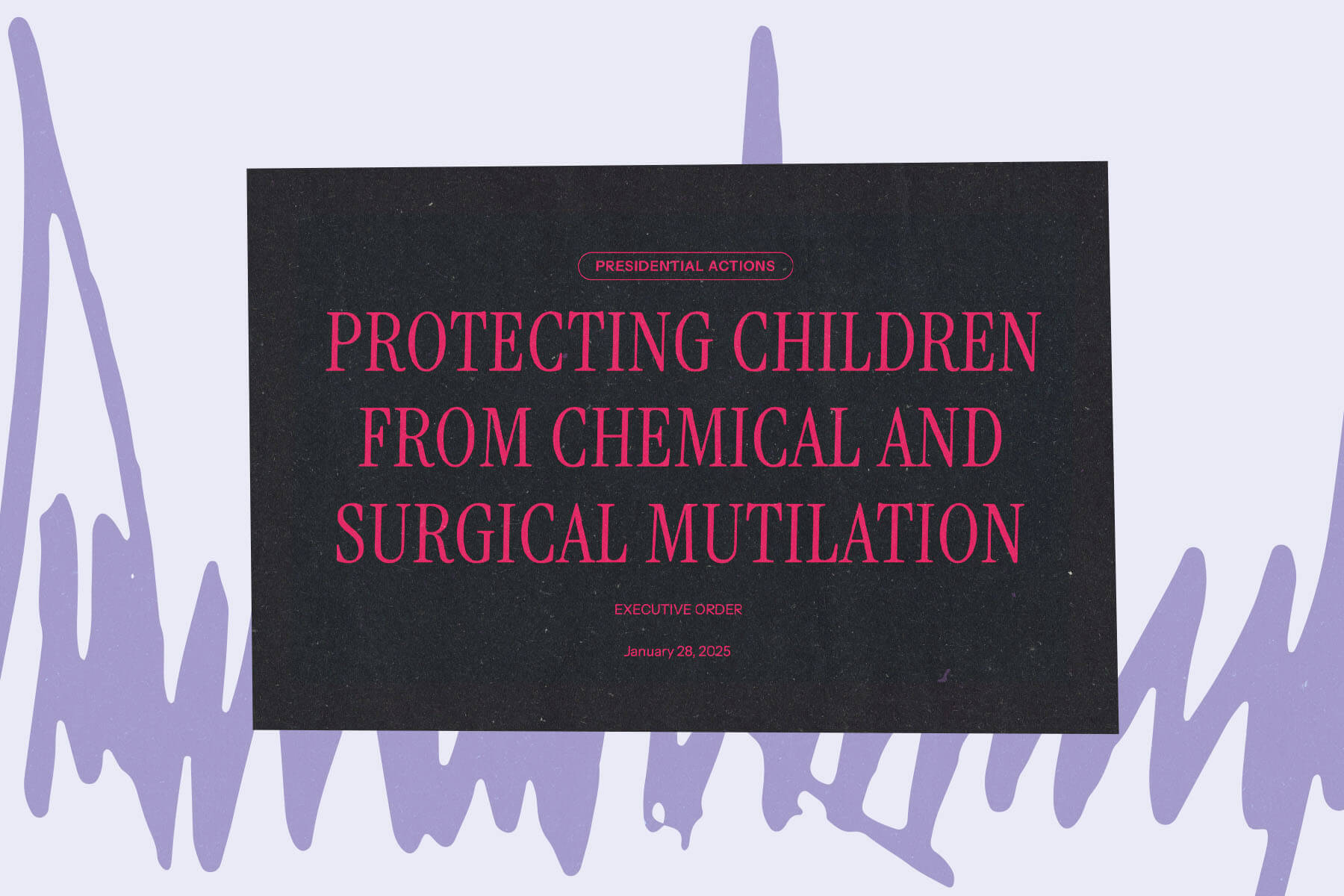A network working to end female genital mutilation and cutting (FGM/C) in the United States and globally says President Donald Trump’s January 28 executive order attempting to restrict gender-affirming care for transgender youth “wrongly and dangerously” conflates the two.
Opponents of transgender rights have sought for several years to co-opt anti-FGM/C laws to further gender-affirming care bans, mostly in state legislatures. The executive order builds on these efforts by directing the Department of Justice and state authorities to review and prioritize the enforcement of laws banning FGM/C, which are unrelated.
FGM/C is a human rights violation and one of the most extreme forms of gender-based violence. According to the World Health Organization, FGM/C “comprises all procedures that involve partial or total removal of the external female genitalia, or other injury to the female genital organs for non-medical reasons.” It is practiced across many cultures and takes many forms, and is most commonly performed on young girls who are unable to consent. There are no health benefits to FGM/C, and it is more likely to cause medical complications.
In contrast, gender-affirming genital surgeries like phalloplasty or metoidioplasty are medically necessary and done only with the consent of the patient. The World Professional Association for Transgender Health, the international body that publishes research-backed standards of care, does not recommend genital gender-affirming care surgeries for patients under 18. Extensive documentation from medical professionals is required for any medically necessary gender-affirming care surgery.
It is estimated that in 2012, over half a million girls in the United States had either undergone FGM/C or were at risk based on the country of origin of their parents. Survivor advocates think the number could be much higher now.
FGM/C has been a federal crime since 1996. The law has been revised several times — most recently in 2020, when Trump signed the STOP FGM Act, which prevented defendents from using religious or cultural reasons to avoid prosecution.
Forty-one states also ban FGM/C, and the laws vary, said Mariya Taher, the co-founder and executive of Sahiyo, the most prominent nonprofit dedicated to eliminating FGM/C domestically. Only a few states have comprehensive legislation, including civil remedies for survivors, education outreach and law enforcement training. Among them is Massachusetts. Taher worked for seven years to pass that law, and is now advocating for a similar bill in Connecticut. “You need to do more than just make it illegal,” she said.
The potential weaponization of anti-FGM/C laws against transgender people has been on the radar for U.S. advocates for several years, Taher said, because they have seen attempts made on the state level.
Anti-trans extremists have warped these laws to ban health care for trans people “despite clear medical and ethical distinctions,” said Ash Lazarus Orr, press relations manager at Advocates for Trans Equality. Orr also pointed out that this rhetoric excludes non-consensual surgeries performed on intersex youth. Many bans include a carve-out ensuring “corrective” surgeries remain legal for minors with intersex characteristics.
Republican lawmakers in Idaho and Texas introduced bills in 2022 that would remove the word “female” from current legal codes banning FGM/C. Anti-FGM/C advocates helped defeat those bills, but Idaho ended up passing a separate law banning gender-affirming care for transgender youth the next year.
Excluding the word “female” means these laws no longer prevent FGM/C because they then refer to something else entirely, said Kaitlin Mitchell, policy and advocacy coordinator at the U.S. Network to End FGM/C. Using the laws to restrict gender-affirming care instead of addressing the specific issue they were designed to make it harder for advocates to campaign for more funding or research on this little-known, severe form of gender-based violence.
All the activists The 19th spoke with emphasized the importance of doing no harm to the transgender community while working to combat FGM/C. This is important too because not all survivors of FGM/C are cisgender women.
Several groups hosted a briefing at the Connecticut legislature in January 2024 to discuss the importance of a state law against FGM/C. A local conservative “pro-family” advocacy group took the opportunity to conflate FGM/C and gender-affirming care for minors, falsely saying that the state was paying for the “genital mutilation of minors.” The group called attention to six cases in which patients with Medicaid or CHIP received procedures coded as mastectomies — nothing to do with genitals.
“The legal definitions of FGM/C inherently exclude” gender-affirming care, wrote Anastasia Law, the program officer for North America at Equality Now, a feminist organization supporting the rights of women and girls worldwide. “FGM/C is non-consensual and without any medical purpose, whereas [gender-affirming care] is provided with robust informed consent processes and for recognized medical purposes,” she continued.
The U.S. Network to End FGM/C, where Mitchell works, released a statement last week condemning the executive order. “Any attempt to shift focus away from protecting girls from FGM/C, preventing this specific violence, and providing services to those affected by FGM/C, especially for political purposes, is misguided and extremely harmful,” it reads.
Activists aren’t the only people fighting back against Trump’s directive to use FGM/C laws to prevent gender-affirming care. Fourteen Democratic attorneys general issued a statement February 5 saying there is no connection between the two.
“As state attorneys general, we stand firmly in support of healthcare policies that respect the dignity and rights of all people,” the statement reads. “Health care decisions should be made by patients, families, and doctors, not by a politician trying to use his power to restrict your freedoms.”






